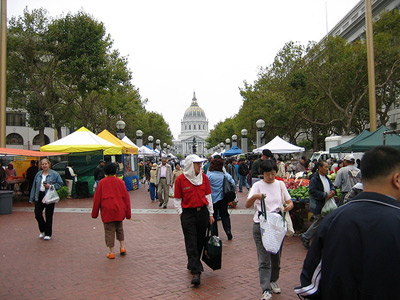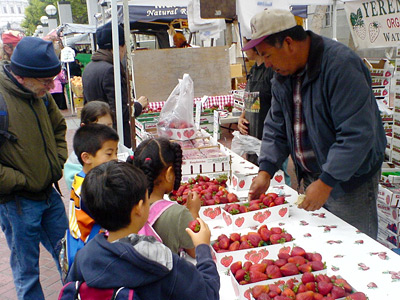
(Photo by trp0.)
There’s been a lot of buzz lately in San Francisco about planting gardens at Civic Center and bringing in a special farmers market for Slow Food Nation's big Labor Day blowout. No surprise that the farmers market just across the street, the one that’s been a neighborhood fixture for the past 26 years, isn’t good, clean or fair enough to take part.
Truth be told, some of us were happy that the Heart of the City wasn’t getting an all-star makeover. It’s fine the way it is, humming along in its quiet, humble way as a workaday market. The Tenderloin shoppers don't need to worry about mobs of tourists elbowing their way in for bits of free fruit, Whole Foodies complaining about the smell of live chickens or lines of groggy hipsters waiting for their espresso drinks.
Residents have been actively fighting gentrification, the inevitable physical and cultural displacement that accompanies economic development, and the neighborhood farmers market is their newest battleground. On Thursday, at a special meeting of the San Francisco Board of Supervisors, one seemingly innocuous agenda item -- "Revocation of Permit for U.N. Plaza Farmer’s Market" -- had to be tabled after public outcry, including a flood of calls from local residents and market vendors.
Mayor Gavin Newsom's quickly reversed his proposal for City Hall's Real Estate Division to assume control of the Heart of the City Farmers Market. No residents, vendors or shoppers were consulted. Market manager, Christine Adams, who has been heading the market since it first opened, learned about the City's idea when it sent her a job application.
